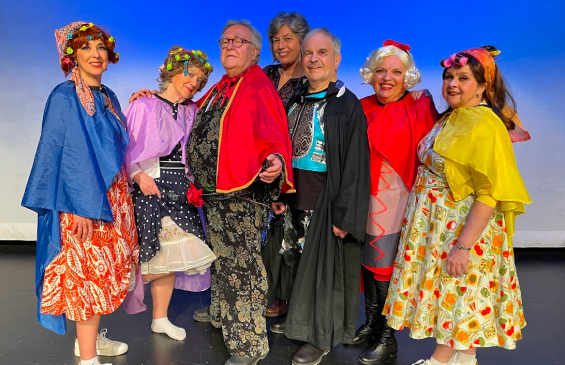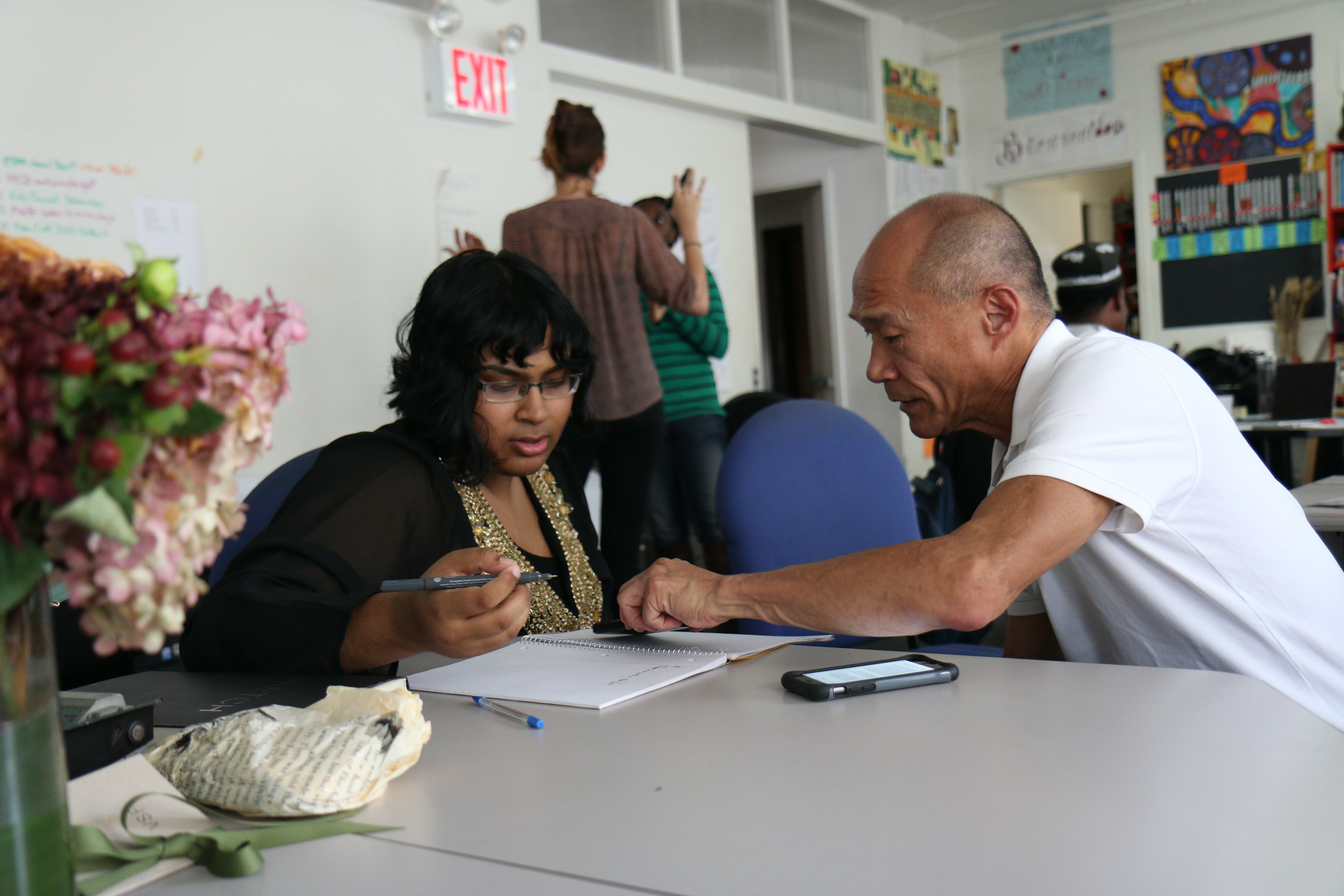’Tis the season of Isolation? How Community Support Can Make a Difference

ACT II STUDIO Act2WORKS Production “Monsieur Leotard” at the Aki Studio in March 2024. Grainne Goodwin is second from the left in the purple shawl and blue and white polka dots dress.
December 11, 2024
The holidays are a time when friends and family often gather to celebrate together. While it can be an opportunity to connect with loved ones, for countless people as they get older, it can be a painful reminder of the loneliness and social isolation that they feel throughout the year.
A report from Toronto Metropolitan University’s National Institute on Ageing (NIA) revealed that 40 percent of Canadians aged 50 and over are at risk of struggling with social isolation.
It’s important to understand that loneliness and social isolation are different but related. Loneliness is the distressing feeling of being alone or separated. Social isolation, on the other hand, is the lack of social contacts and having few people to interact with regularly. You can live alone and not feel lonely or socially isolated, and you can feel lonely while being with other people.
Building Strong Social Connections
One of the ways to address the silent epidemic of loneliness in older adults is by strengthening social connections. The Programs for 50+ and Community Engagement at The Chang School are helping older adults to do just that. P50+ learner Grainne Goodwin breaks down the difference between loneliness and social isolation when it comes to taking courses.
“P50+ can help with social isolation, which can contribute to loneliness. On the flip side, there are lots of people who are socially isolated that won’t feel lonely whether they’re older adults or younger adults,” she says.
Having a community like P50+ can also make up for those that people lose once they retire, points out fellow P50+ learner Margaret Sellers.
“I have friends whose social life revolved around their work friends and even though they tried, those connections slowly disappeared,” she says. “If you haven’t cultivated a lot of interests during your work life, it is hard to find new ones after retirement that provide the same opportunity to make new friends.”
Grainne has been taking acting courses with ACT II STUDIO since 2007, a time in her life when she remembers feeling lonely after her daughter went off to university and she and her husband were suddenly empty nesters.
“I was devastated,” says Grainne, remembering that time. “It wasn’t just lonely, it was grieving. My husband as well – we both grieved – there was an echo everywhere in the house.”
By chance, Grainne heard about the P50+ program through a friend. For her, it was a way to rekindle a lost love of acting that she had as a teenager growing up in Ireland and find a new community outside of her then full-time job as a psychiatrist.
“[Programs for 50+] opened up an entirely different world to me. I came from the hospital world and into this crazy world that were things I loved in high school like acting and Shakespeare that had dropped off completely as I went into academia,” she says.
Because of the small class size (less than 15 people) in ACT II STUDIO courses, Grainne says everyone gets to know each other. On top of that, she says it’s just fun.
“ACT II has helped so many people, myself included, just blossom. So many people are doing things that they always wanted to do when they were kids and now they’re getting to do them later in life. Many people in ACT II are now working in TV, theatre, and movies.”
Grainne says she’s enjoyed the opportunity not only to attend classes but be a part of smaller-scale theatre productions in Toronto.
Margaret is also registered in ACT II STUDIO courses and says she, like Grainne, feels like she’s back in high school.
“There are lots of classes to attend and people to meet and get to know,” she says. “There is plenty of interaction when you’re working on a play as well as opportunities to volunteer and get involved. These are all bonding experiences.”
Another great way to build social connections is through music. TMU also has a University Concert Choir that is putting on a concert this month. The Toronto Metropolitan University Concert Choir (TMUCC) is presenting a diverse program of Solstice, Hanukkah, and Christmas songs at its inaugural concert on Saturday, December 14. P50+ offers a singers course for those who are interested in singing with others.

